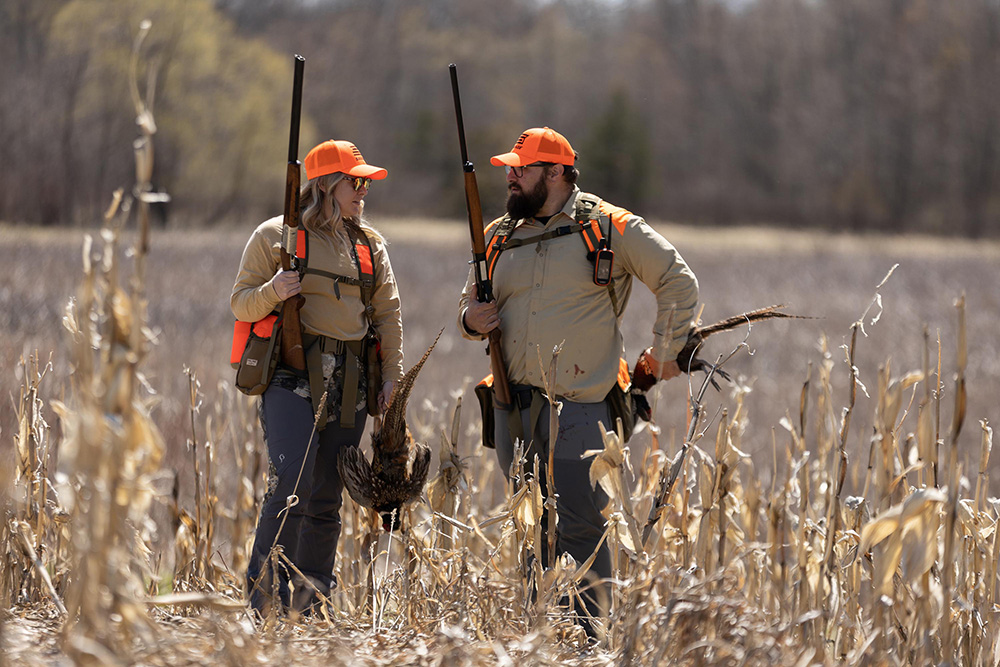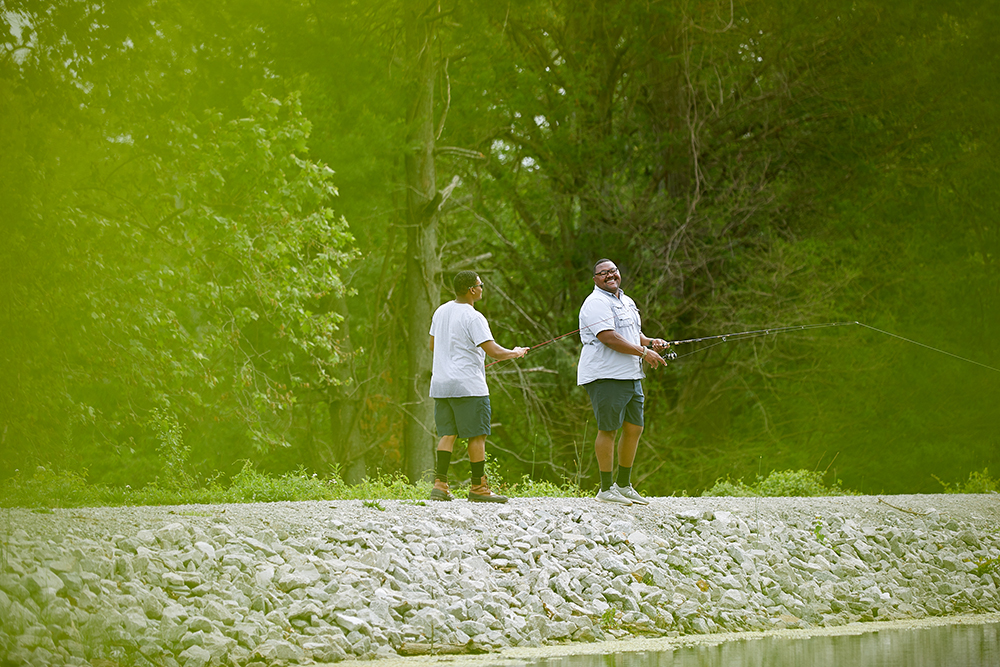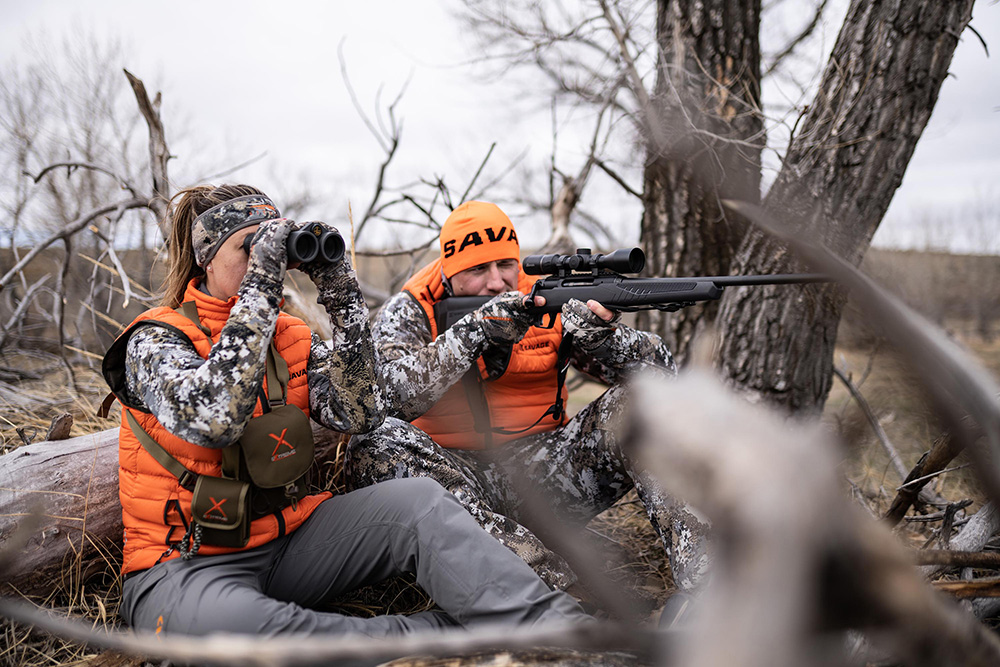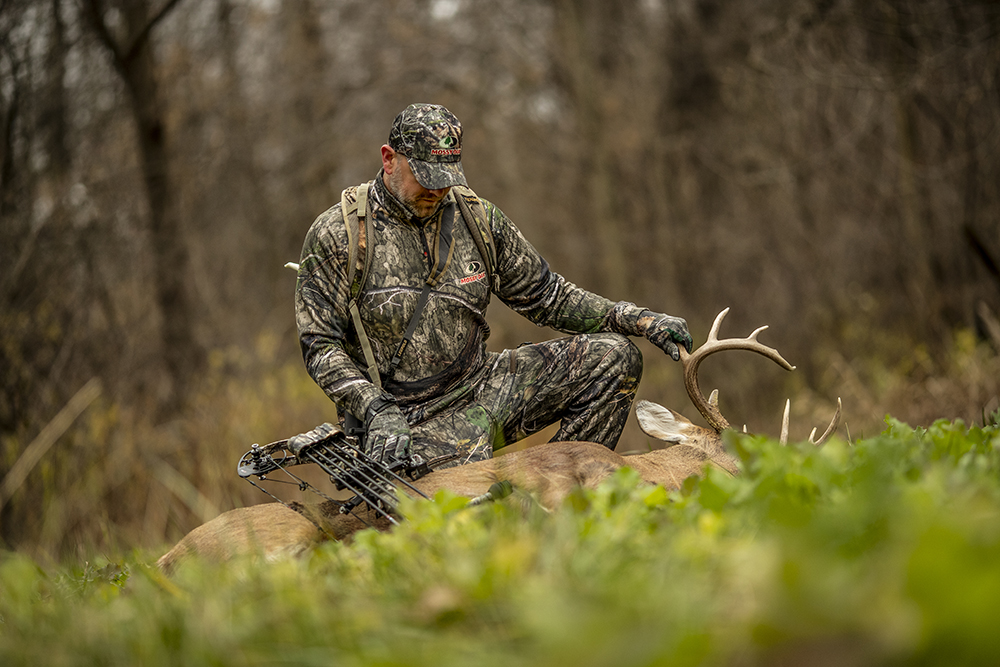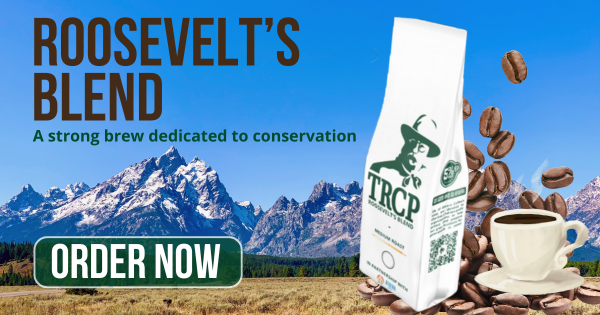House Lawmakers have introduced the Voluntary Public Access Improvement Act to boost a crucial Farm Bill program that creates public hunting and fishing opportunities on private land.
The Voluntary Public Access Improvement Act of 2023 has been introduced in the House by Representative Debbie Dingell (D-Mich) and Representative Dusty Johnson (R-S.D.). This bill is a companion to the bipartisan Senate bill introduced in April by Senator Steve Daines (R-Mont.), Senator Michael Bennet (D-Colo.), and Senator Roger Marshall (R-Kan.) to strengthen one of the most critical Farm Bill programs for America’s hunters and anglers: the Voluntary Public Access and Habitat Incentive Program (VPA-HIP). It is the only federal initiative that helps to create public hunting and fishing opportunities on private land and this new legislation calls for tripling the program’s impact. Bipartisan sponsors in both the House and Senate show the value of this program and bode well for increased investments in hunting and fishing access.
“Lack of access is the largest barrier to hunter and angler participation, and the USDA’s Voluntary Public Access and Habitat Incentive Program is the single best federal tool to increase recreational access on private lands,” said Whit Fosburgh, president and CEO of the Theodore Roosevelt Conservation Partnership. “We applaud Representatives Dingell and Johnson for their leadership on the Voluntary Public Access Improvement Act and we look forward to working with Congress to expand hunting and fishing opportunities for all Americans.”
The legislation would invest $150 million over the next five years in the VPA-HIP, which provides grants to states and Tribes to be implemented at the local level. This increased investment was among the recommendations made by TRCP’s Agriculture and Wildlife Working Group in its “Hunter and Angler Priorities for the 2023 Farm Bill” released earlier this year.
The Voluntary Public Access Improvement Act is supported by more than 30 hunting, fishing, and conservation organizations.
“Access to private lands provides valuable fishing opportunities to anglers across the country,” said Glenn Hughes, president of the American Sportfishing Association. “Since 2008, the Voluntary Public Access and Habitat Incentive Program has delivered crucial support to landowners to voluntarily open their lands to fishing, hunting and other outdoor recreation. The American Sportfishing Association applauds Representatives Dingell and Johnson for their support of VPA-HIP through legislation that would expand this successful program and open new waters to America’s 52.4 million anglers.”
“We greatly appreciate Representatives Dingell and Johnson introducing the House version of the VPA Improvement Act. As we entered discussions of the 2023 Farm Bill, extending and expanding the impact of VPA-HIP was one of Delta’s highest priorities,” said John Devney, chief policy officer at Delta Waterfowl. “As duck hunters across the country look for additional access, increased investments in VPA HIP can lead to new partnerships with private landowners to enhance habitat and also provide access. We hope that the effort by Representatives Dingell and Johnson will lead to a broader bi-partisan effort to include an expanded VPA-HIP in the final Farm Bill.”
“Since 2008, the Voluntary Public Access & Habitat Incentive Program has provided one of the most vital funding sources for increasing public access to private lands for hunting, fishing, and other wildlife-dependent recreation. The economic returns from investments in VPA-HIP have been shown many times over across America for rural communities. Access is at the core of Pheasants Forever and Quail Forever’s mission, and we thank Representatives Dingell and Johnson for their bipartisan support for this very successful program.” – Marilyn Vetter, President and CEO, Pheasants Forever & Quail Forever.
“VPA-HIP is an incredibly important program for hunters, opening nearly one million private acres to public hunting, fishing, and outdoor recreation over its lifetime,” says Torin Miller, senior director of policy for the National Deer Association. “Not surprisingly, interest and enrollment in the program is growing. The Voluntary Public Access Improvement Act of 2023 recognizes the growing interest in the program and the importance of maintaining quality hunting access across the country. The bill’s $150-million authorization will ensure expanded and continued enrollment in VPA-HIP, benefiting hunters, landowners, and local communities. The National Deer Association is proud to endorse this legislation.”
“Restoring wildlife habitat and expanding recreational access on private lands is a win-win for both wildlife and the hunters, anglers, and outdoorspeople, who power our $862 billion outdoor recreation economy,” said Collin O’Mara, president and CEO of the National Wildlife Federation. “This common-sense bill will ensure farmers, ranchers, and private landowners have the tools and resources they need through the Voluntary Public Access and Habitat Incentive Program to sustain our shared wildlife heritage. Thank you to Representatives Dingell and Johnson and their colleagues in the Senate for working to pass this important bipartisan legislation.”
The VPA-HIP is the single best federal tool for increasing recreational access on private lands by helping states create innovative ways of incentivizing private landowners to open their lands to the public for wildlife-dependent recreation. It also has a very special place in the hearts of TRCP’s staff and supporters, as it was championed by our inspirational co-founder, Jim Range, before his untimely death. The program was established and funded through the 2008, 2014, and 2018 Farm Bills—most recently at $50 million over five years—with its impacts felt across the country.
Apart from creating more outdoor recreation access, VPA-HIP funding is also utilized to provide technical and financial assistance to landowners for wildlife habitat improvement and enhancement projects. It is often layered with other Farm Bill programs that have habitat benefits, such as Conservation Reserve Program and Wetland Reserve Easements. And the program allows states to address liability, alleviating a roadblock for many landowners to open their lands to the public.
Recent studies have shown that the VPA-HIP has a more than eight-to-one return on investment in the form of outdoor recreation spending in rural communities.
Click here to watch a video about some of the many benefits of the Voluntary Public Access and Habitat Incentive Program.
.

